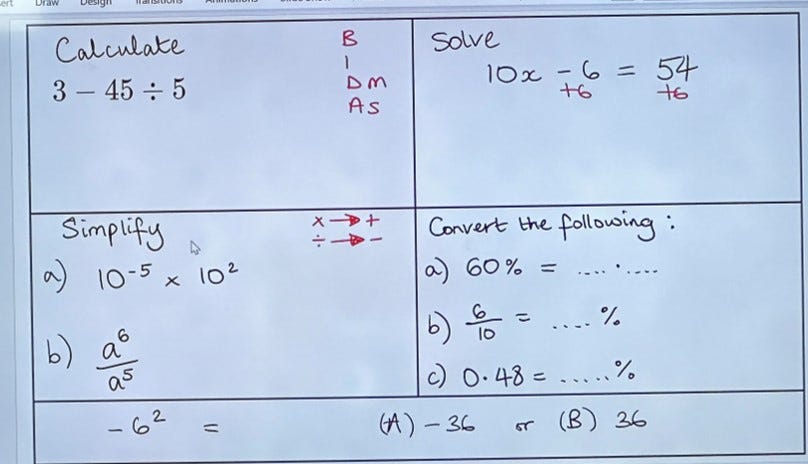#40 Don't make hints unavoidable
Hide hints to improve the effectiveness of a retrieval opportunity
Hello, and welcome to the Tips for Teachers newsletter.
I have 7 free websites
I write 2 free weekly newsletters
I host 2 free podcasts
I share over 200 free CPD videos
If you find my work useful, please consider becoming a Patreon
💡 A tip to try in class this week 💡
The most powerful form of retrieval is when there are no hints or cues present. All students have available are their own memories, which is all they will have in an exam. However, if students cannot recall the knowledge they need, there is little point in them staring at a blank page for the duration of the retrieval opportunity. Therefore, in such circumstances, it makes sense to offer students hints and cues that might be enough to kick-start the retrieval process. I discussed this very matter with retrieval expert, Kate Jones, on my Tips for Teacher podcast a while ago.
But I think we need to be careful not to serve such hints and cues up on a plate during a retrieval opportunity.
Have a look at this Do Now from a school I visited recently:
Notice the hints in red for the first three questions. These hints are great, and allowed students who were struggling with these questions to access them. But what about the students who did not need these hints? Because the hints are unavoidable - as soon as you read the question you see them - they were robbed of an opportunity to see what they could retrieve independently.
I see the same issue play out a lot in the classrooms I visit. Just before students attempt a question, the teacher offers a verbal hint: “Remember to do the same to both sides”, or “Watch out, this one is a bit different to the last question”. Or the hints are visual, such as when a key word is helpfully underlined for students tackling a wordy question.
The solution, I think, is to refrain from giving hints and cues so students can see what they can do without them, but have them available when students need them. So, in the Do Now example, the hints could be on the back of the piece of paper, or only revealed on the board after 5 minutes. Or when setting students off to answer a question, we refrain from giving a verbal or written hint to the whole class, and instead save it for the specific students who we identify as needing it as we circulate the room.
What do you think of this idea?
What would you need to change to make this tip work for you?
When could you try it for the first time?
View more than 200 Tips for Teachers
🏃🏻♂️Before you go, have you… 🏃🏻♂️
… tried last week’s tip about following tumbleweed with a Turn and Talk?
… read my latest Eedi newsletter about the opportunity cost of digging deeper?
… listened to my latest podcast with Mark McCourt about Mastery?
… read my Tips for Teachers book?
… considered booking some CPD, coaching or maths department support?



How about writing a hint on a mini white board, then we can show any students the hint if they are struggling?